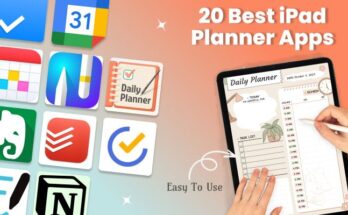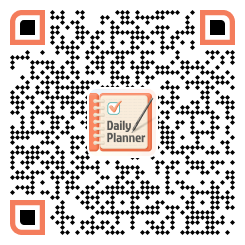Event planning involves juggling numerous tasks, ideas, and details, making organization crucial for success. Notes planner serves as an invaluable tool in this process, helping to centralize all information, track progress, and ensure no detail is overlooked. Whether you’re planning a wedding, corporate event, or personal celebration, Using a notes planner for events streamlines tasks, improves collaboration, and keeps everything on schedule, ensuring a smooth and successful event.
The Role of Notes in Event Planning
Notes play a critical role in event planning as they help organize, track, and solidify ideas, tasks, and logistics. Whether you are a solo planner or working with a team, taking detailed notes helps ensure that no important detail is overlooked. Here’s how notes help:
- Centralized Information: All planning details—venues, vendors, guest lists, schedules, and contact info—are in one place, which makes retrieval easy and quick.
- Idea Capture: When brainstorming or receiving client input, notes help capture spontaneous ideas that can be refined and integrated later.
- Actionable Tasks: As ideas evolve into tasks, notes can be transformed into to-do lists, checklists, or action items with clear deadlines.
- Budget Tracking: Detailed notes can also track budgets, including costs for venues, catering, and decoration, and can help prevent overspending.
- Reviewing Event Progress: As tasks get completed, notes help track progress and allow you to adjust strategies if needed.
How to Get Started with Notes Planner for Event Planning
Notes Planner is an all-in-one event planning app that integrates the power of digital note-taking with comprehensive event management features. Whether you’re a professional event planner or planning a personal event, Planwiz simplifies the process of turning ideas into reality. Here’s a step-by-step guide on how to get started with a notes planner .

Select a Platform
When choosing a platform to start your event planning, consider both functionality and accessibility. Planwiz offers a digital solution with robust features, perfect for event planning:
- Mobile and Desktop Access: You can access Planwiz on both your mobile device and desktop, ensuring you can plan and update your event anytime, anywhere.
- All-in-One Solution: Unlike other note apps, Planwiz integrates notes, task management, guest lists, vendor coordination, budget tracking, and timelines into one platform.
- Collaboration: You can share the planner with your team, assign tasks, and track progress in real time, making it easier for everyone involved to stay updated.
Define Categories for Your Event Notes
Once you’ve selected Planwiz, it’s time to set up categories to keep your notes organized. Think of these categories as the foundation of your event planner. Here’s how to structure them:
- Create Sections: Within Planwiz, you can create customizable sections for different aspects of your event:
- Ideas/Brainstorming: Jot down any creative ideas you have for the event. This could include themes, activities, and entertainment.
- Guest List: Track the names, contact info, RSVPs, and special requests for guests.
- Vendors: Record details about potential and confirmed vendors such as caterers, photographers, decorators, and florists. Include contact info, contracts, payment status, and any specific requirements.
- Timeline/Agenda: Organize the event’s schedule by time blocks (e.g., “Arrival at 3:00 PM”, “Dinner at 6:00 PM”). This section allows for easy tracking and real-time adjustments.
- Budget: Set up a section dedicated to tracking your event expenses. In Planwiz, you can link vendors to specific budget items and track costs against your initial estimates.
Create an Event Overview
To begin organizing your event, you need a broad overview that gives you and your team the essential information. Here’s what you can do in Planwiz:
- Event Details Page: Create a detailed event overview that includes:
- Event Name: Define the name or title of the event.
- Date and Time: Set the event’s date and key timings (including setup and breakdown periods).
- Venue Information: Add the venue’s name, address, contact person, and any other relevant details like room layouts or venue-specific rules.
- Event Purpose: Briefly describe the event’s goal (e.g., a wedding, corporate conference, birthday party).
- Budget Overview: Set a budget target for your event and start categorizing your expected expenses.
Establish Your First Tasks
Breaking down your event into actionable tasks is the most important next step in planning. In Planwiz, you can transform your ideas into a structured task list. Here’s how:
- Task Creation: Create tasks for the main components of your event. For example:
- Booking the Venue: “Confirm venue availability and finalize contract.”
- Sending Invitations: “Design and send digital invitations.”
- Arranging Catering: “Contact catering service and confirm menu options.”
- Task Deadlines: For each task, set deadlines. Planwiz allows you to assign start and end dates, ensuring that tasks stay on track.
- Assign Responsibilities: You can assign each task to specific team members or vendors. This feature ensures everyone knows what they’re responsible for.
- Prioritization: In Planwiz, you can mark tasks with priority labels (e.g., “High,” “Medium,” “Low”).
Use Checklists to Track Progress
In event planning, checklists are key to staying organized and ensuring that nothing is missed. Planwiz lets you create detailed checklists within each category of your event:
- Checklists for Each Section: For example, in your vendor section, you can create a checklist for each vendor, including tasks like:
- “Confirm booking details”
- “Provide final guest count”
- “Confirm payment status”
- Timeline Checklists: For each item on your timeline (e.g., ceremony start, reception dinner), you can create checklists of preparatory steps. Example:
- “Decorations set up”
- “Sound system checked”
- Progress Tracking: As tasks and checklists are completed, you can mark them off. This visual progress tracking gives you a clear view of what’s done and what needs attention. Planwiz updates task statuses in real time, so you’ll never lose track of what needs to be completed.
Use Customizable Notes Planner Templates
One of the standout features of Planwiz is its customizable notes planner templates. Rather than starting from scratch, you can leverage ready-made templates that you can personalize to suit your event’s needs:
- Pre-built Templates: Planwiz offers a variety of pre-built templates for different types of events (e.g., weddings, corporate events, conferences). These templates come with predefined categories, checklists, and tasks.
- Customization: Once you choose a template, you can easily customize it to fit the specifics of your event. Add new sections, tweak tasks, and adjust timelines to reflect your unique requirements. For example, if you’re planning a wedding, you can modify the “Vendor” section to include florists, DJs, or photographers, depending on your preferences.
- Save and Replicate: If you plan multiple events, you can save your customized templates and reuse them for future events. This feature speeds up your planning process, allowing you to focus on what matters most—executing a successful event.
- Consistency: Customizable templates help maintain consistency in your planning process, ensuring you cover all essential elements, no matter what type of event you’re organizing.
Turning Ideas into Actionable Event Tasks with Notes Planner
Turning ideas into actionable event tasks requires a structured approach. Begin by brainstorming all potential ideas, no matter how big or small. Capture every thought, whether it’s a theme, entertainment option, or vendor. This stage is all about creativity, so don’t hold back. Write down everything that could contribute to your event’s success.
Once you have a list of ideas, categorize them into specific groups. For instance, separate venue ideas, catering options, and entertainment possibilities. This makes it easier to start organizing tasks later. For a more structured approach to task organization, consider using our task planner templates, which help systematically convert your event ideas into manageable, actionable tasks.
The next step is converting your ideas into actionable tasks. Take each categorized idea and turn it into a specific task with clear objectives. For example, if you’re considering a live band for entertainment, your task could be “Contact local bands for quotes.” Once tasks are defined, prioritize them by urgency and set deadlines to keep everything on track for smooth event execution.
Create and Managing Event Timeline Using Notes Planner
An event timeline is crucial to ensuring that everything is completed on time. Notes planner can be particularly helpful in creating and managing timelines:

Define Event Phases
To effectively manage your event timeline, start by breaking the entire process into clear phases: Pre-Event, Day-of, and Post-Event. This segmentation allows you to organize your tasks more efficiently. Create separate notes or sections within your planner for each phase, making it easier to focus on what you need to do at each stage of the event planning process.
Create a Detailed Schedule
Once you’ve defined the event phases, create a detailed schedule in your notes planner. List all the major milestones leading up to the event, such as “6 months before: Book venue,” “3 months before: Send invitations,” and “1 week before: Finalize decor.” This gives you a clear roadmap and ensures you’re meeting deadlines ahead of time to stay on track.
Time Blocks for Event Day
For the day of the event, break the day down into specific time blocks. This will help you organize all the activities, from setup to the final moments. For instance, you might have “10:00 AM – Decor setup,” “2:00 PM – Guest arrival,” and “4:00 PM – Entertainment begins.” By scheduling everything with clear time frames, you can ensure smooth transitions throughout the event. Time management tips like avoiding overlapping tasks and allowing buffer time between activities can also keep things running on schedule.
Set Reminders for Critical Tasks
Set reminders for critical tasks with close deadlines to avoid last-minute stress. With a notes planner app, you can set notifications for important milestones or tasks approaching their deadlines. These reminders act as useful prompts, helping you stay organized and preventing you from overlooking any critical details while finalizing the event.
Track Progress and Adjust Timeline
As you move through your event planning process, regularly check off completed tasks in your planner. If any delays or adjustments occur, update your timeline accordingly. This ongoing tracking allows you to identify any bottlenecks early and adjust your plan if necessary. With real-time progress tracking, you can stay flexible and adapt to any changes that may arise.
Collaborating with Your Team Using Notes Planner
In event planning, collaboration is key, and notes planners help ensure that everyone is on the same page:
- Sharing Notes: Use apps that allow for note sharing, so your team can access the same information in real time. Google Docs, Microsoft OneNote, or Trello are great for collaboration.
- Assign Tasks: Within your planner, assign tasks to team members and track their progress. This allows for accountability and ensures everyone knows their responsibilities.
- Commenting & Feedback: If you use a digital platform, you can comment on tasks, provide feedback, and make revisions to ensure that no details are missed.
- Group Notes: For team discussions, keep a section for collaborative brainstorming where everyone can add their thoughts and ideas, ensuring inclusive participation.
- File Sharing: You can use note planners to share important documents, contracts, or images (like venue layouts or design concepts) that everyone needs to access.
How Notes Planner Handle Event Changes and Adjustments
Even the best-laid plans often require adjustments, and a Notes Planner offers the flexibility to handle these changes efficiently. As new information comes in, such as a vendor changing their pricing or availability, you can quickly update the relevant details in your planner. This immediate editing helps keep your plans current without losing track of essential information.
For teams working together, many digital Notes Planner apps offer revision history, enabling you to track changes and see who made them. Set up notifications to instantly alert all team members when you update important details, such as the guest list or venue. This ensures everyone stays aligned throughout the planning process.
If unforeseen circumstances affect your timeline, a Notes Planner allows for quick adjustments. You can modify tasks, shift deadlines, and communicate the changes to your team. Additionally, record contingency plans for various scenarios, such as alternative vendors or backup options, to prepare for any situation that might arise during the event planning process.
Conclusion
A note planner is an indispensable tool for event planners. It allows you to seamlessly capture ideas, break them down into tasks, organize timelines, and collaborate efficiently with your team. By embracing the power of notes, you not only stay organized but also ensure that your event planning runs smoothly from start to finish. Incorporating planning organization ideas into your workflow helps refine your approach, making the entire process more effective and manageable.







